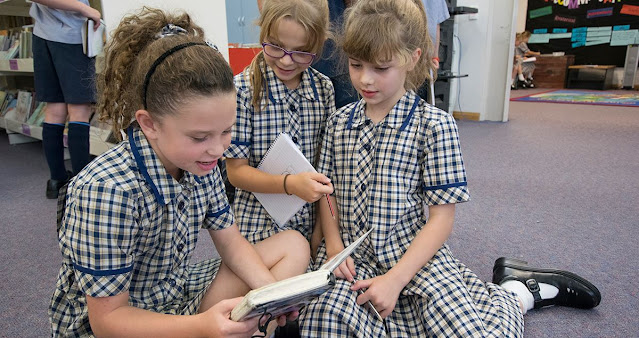Writing In Schools- Critical Conversations
In my travels between schools I am seeing an increasing number of them engaging in critical conversations around the teaching of writing.
They are striving to flush
out the important issues that surround the work being done across the school to
support writing development. A desire to develop agreed understandings and consistent
practice regarding pedagogy are guiding these important moves.
There exists in these
schools a desire to ensure student writers think more deeply about what they
are writing down; to write about the things that matter most to them, -those
things closest to the heart. So voice and choice are becoming a centrepiece of
the writing program.
To foster the emergence of
writing during the year there is an understanding that It is important to teach
young writers how and where to find great ideas for writing. Ideas often lying deep
inside the young writer.
Teachers have embraced the
importance of modelling such things to student writers. They are sharing their
own writing, their own wonderings, and their own observations of the world.
They are laying the foundation for thinking about potential writing ideas. In
an increasing number of classrooms I am witnessing important actions taking
place within the writing workshop to drive learning deeper. Here are some of
the essential learning I am seeing emerge:
Writers make lists of
important memories, people, places which could become writing topics
· Writers sometimes sketch
important memories, people, places which could spark an idea for a story
· Writers get ideas for
writing from reading other books
· Writers learn from their
mentor authors
· Writers make decisions
about topic and genre
· Writers need to be
observers of the world
· Writers are storytellers, so talk is critical to
writing
· Writers can write anywhere
they choose
· Writers are collectors
which is why a notebook is important to them
· Writers share their
discoveries with other writers
· Writers choose topics close
to their hearts
· Writers choose small
topics/ small moments
· Writers choose ideas that
matter enough to write a lot about it
· Writers know that writing what
we know, think, feel or wonder about a topic helps us discover the heart of the
subject
· Writers often rehearse their lead
sentences before writing them down
· Writers use pictures to
help tell their stories
· Writers can add words below
their pictures or to the text they have already written
· Writers can add labels to
their pictures
· Writers can add to pieces
of writing they have worked on previously
· Writers spell lots of words
by saying them slowly and writing the sounds they hear.
· Writers can be brave when
it comes to unfamiliar words by attempting them before seeking help
· Writers use details from
their stories to plan their illustrations
· Writers often think about
and rehearse their stories before they begin writing
· Writers reread their
writing when they think they are finished
· Writing takes many forms
–books, cards, songs, signs, instructions, letters, poems
· Writers understand that
dialogue can bring a story to life
· Writers try to create
endings that satisfy readers
· Writers revise to improve
the content of their writing
· Writers edit to improve the
flow of words and the surface features of the writing
· Writers are always aware of
the needs of their audience (readers)
· Writers make lots of
decisions when publishing their writing
· Writers make decisions about
how and where they will share their writing
· Writers use a variety of
sentences in their writing
Writers reread old notebook entries to find new ideas
Writers Read!
· Writers need to build their
stamina just as readers do
I am so pleased to see
these matters being presented, discussed and unpacked as part of the writing
programs in schools. When teachers see such things as important they teach more
mindfully and explicitly. Such matters are part of a concerted move towards
making writing an authentic experience for the developing writer.








A great post Alan, again I was running training for some of my staff today and we were unpacking many of these very ideas in order to raise the joy and enthusiasm around writing with our children. Thanks for your wisdom!
ReplyDeleteThanks Sally. It is pleasing that in your work you are experiencing similar conversations around the teaching of writing. The notion of joy and enthusiasm connected to writing are well worth our collective efforts.
ReplyDelete